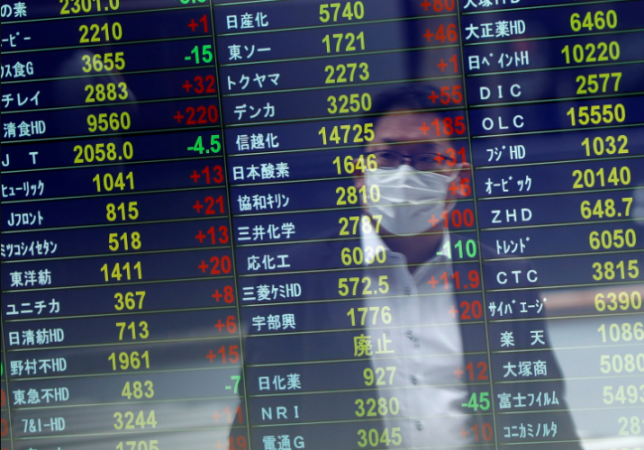
Tokyo: Asian stock markets fell after the United States Federal Reserve confirmed that interest rates were not raised to combat inflation.
On Thursday, Hong Kong's benchmark fell 3.1 percent, while Shanghai, Seoul and Sydney followed Wall Street after the Fed raised its key rate to the highest level in 15 years.
Oil prices fell, and the euro remained below 99 cents.
Also Read: China reviving Maoist institutions for economic separation from the rest of the world
For the fourth time this year, the S&P 500 index fell 2.5 percent after the Federal Reserve raised 0.75 percentage points above its normal margin.
Fed Chair Jerome Powell confirmed that with more rate hikes, "we have a long way to go." He said the halt would be "too long ago".
"Recession risks are rising, but this is the price the Fed is willing to pay to get inflation under control," ING's James Knightley, Paedric Garvey and Chris Turner wrote in a report.
The Hang Seng in Hong Kong fell 488 points to 15,338.85, while in Sydney the S&P-ASX 200 fell 1.9 per cent to 6,855.40.
The Shanghai Composite Index fell 0.2 per cent to 2,997.46. Japanese markets remained closed for the holiday.
The Seoul Kospi fell 0.6 percent to 2,322.11. Markets in New Zealand and Southeast Asia also fell.
This year, the Fed and central banks in Europe and Asia have aggressively raised interest rates to combat decades of high inflation. Investors are worried that this could propel the global economy into recession.
Also Read: US and UAE partner in $100 billion clean energy project
As of the previous month, consumer prices in the US increased by 6.2 percent in September from a year earlier. To provide a clearer picture of the trend, core inflation, which does not include volatile food and energy prices, rose to 5.1 percent from 4.9 percent in August.
The Fed said on Wednesday that it may switch to a slower rate of rate hikes and will take into account the overall economic impact.
The S&P 500 fell to 3,759.69 on Wall Street. At 32,147.76, the Dow Jones Industrial Average fell 1.5 percent. The Nasdaq Composite fell 3.4 percent to 10,524.80.
Retailers, healthcare providers and technology stocks were among the biggest losers.
Johnson & Johnson, Inc. Dropped 1.5 percent, Amazon.com, Inc. fell 4.8 percent, and Apple, Inc. All experienced declines.
Investors are hoping that signs of a slowdown in housing sales and other economic activity will prompt the Fed to roll back its rate-hike plans. However, the most recent data, especially with regard to hiring, is relatively strong, suggesting that the Fed may remain aggressive.
On Thursday, the US government is due to release data on unemployment, and on Friday will release a report on the overall job market.
Also Read: Australia's central bank increases rates by 25 basis points as anticipated
In the energy sector, benchmark US crude fell 43 cents to $89.57 in New York Mercantile Exchange electronic trading. On Wednesday, the contract increased from $1.63 to $90.
The benchmark price for global oil trade, Brent crude, fell 27 cents to $95.89 a barrel in London. On the previous day, it rose by $1.51 to $96.16 per barrel.
The US dollar rose to 147.33 yen from 146.94 Japanese yen on Wednesday. The euro fell from 98.83 cents to 98.26 cents.